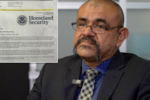A recent report sheds light on the concerning trend of absenteeism among South Carolina students. The study, conducted by a collaboration of education professionals, reveals that a significant number of students in the state are missing school more frequently. The reasons for this are multifaceted, and the report offers a detailed breakdown of the causes, including socio-economic factors, mental health issues, and the lingering effects of the pandemic.
According to the findings, many students are facing challenges at home, such as unstable housing, financial hardships, and lack of access to reliable transportation. These barriers have made it difficult for them to attend school regularly, particularly in rural and low-income areas.
The Impact of Mental Health
Mental health challenges are also a key factor contributing to absenteeism. Students across the state have been experiencing increased anxiety, depression, and stress, which have been exacerbated by the disruptions caused by the COVID-19 pandemic. These issues have led to a rise in school avoidance, especially among older students.
The report also highlights that schools are not always equipped with the necessary resources to address these mental health concerns, leaving many students without the support they need to attend school consistently.
Addressing the Issue
To combat this growing problem, the report recommends increased funding for mental health services in schools, as well as efforts to provide students with more stable home environments. Experts also suggest that schools improve outreach programs to better engage families and offer more flexible attendance policies.
As the state works toward addressing these challenges, education leaders are emphasizing the need for a comprehensive approach to keep students in the classroom.
For more on the state of student absenteeism in South Carolina and efforts to improve attendance, visit Live 5 News.
Note: Every piece of content is rigorously reviewed by our team of experienced writers and editors to ensure its accuracy. Our writers use credible sources and adhere to strict fact-checking protocols to verify all claims and data before publication. If an error is identified, we promptly correct it and strive for transparency in all updates.








